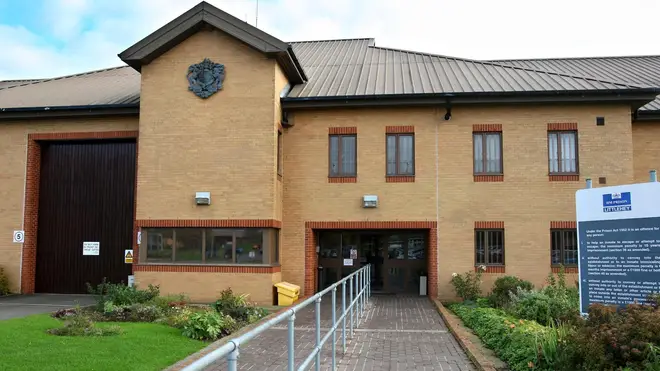
Ian Payne 4am - 7am
14 April 2020, 19:40

Covid-19 cases have been confirmed in almost half of the prisons in England and Wales, with 207 prisoners testing positive.
57 of the 123 prisons in England and Wales have seen cases, with 13 inmates having died from coronavirus.
Three of those were at HMP Littlehey in Cambridgeshire.
As of April 3, there were 82,589 inmates behind bars in the prisons.
Read more: UK coronavirus cases and hospital admissions 'beginning to plateau'
The news comes as it emerged three prison officers have died after testing positive for Covid-19 and there was an "outbreak" of the disease at HMP Wymott in Lancashire over the weekend.
62 prison staff have tested positive for Covid-19 in 28 prisons as well as five prisoner escort and custody services staff.
Jo Farrar, chief executive of the Prison and Probation Service, told the Commons Justice Committee on Tuesday that 700 prison staff had been tested for coronavirus and 6,268 were self-isolating.
Read more: British coronavirus death toll passes 12,000 after a further 778 die in one day
She said: "We had a particular issue over the weekend at HMP Wymott where we had an outbreak in a prison that houses a number of older people."
Inmates are due to be moved in the next couple of days so they can be held in single cells, she added.
The news comes after the Ministry of Justice announced single-occupancy temporary prison cells will be built in the grounds of seven jails in a bid to prevent the spread of coronavirus.
Listen & subscribe: Global Player | Apple Podcasts | Google Podcasts | Spotify
So far, there are plans for up to 2,000 temporary cells which will be used by low-risk category C and D offenders.
Self-isolating or symptomatic prisoners and those who have tested positive are put in a cell on their own but Ms Farrar admitted those who have not displayed symptoms may still be sharing cells with other inmates.
The MoJ has also pledged to release up to 4,000 low-risk prisoners on temporary licence in a bid to ease overcrowding, as well as pregnant inmates and mothers behind bars with babies.
All offenders must pass a risk assessment before their release is approved.
So far, four men out of 4,000 have been temporarily freed but prisons minister Lucy Frazer told the committee there were plans to release a significant number this week and she expects tomorrow "a few hundred people will be released and that will continue".
The Government had "significantly increased" the supply of electronic tags to be fitted on the offenders in question, she said.
Some 14 pregnant inmates and mothers with babies out of around 70 have been temporarily freed, she added.
Meanwhile chief inspector of probation Justin Russell raised concerns over how probation officers can continue to carry out their work supervising offenders who have already left jail when the quality of risk assessments was already "poor".
Probation officers have resorted to carrying out doorstep checks on tens of thousands of high and medium-risk offenders amid the coronavirus outbreak to avoid meeting in close quarters.
The measures are being used to monitor 16,000 high and medium-risk offenders - where there could be domestic abuse and safeguarding concerns.
This will involve a phone call with the offender while they are visible to their probation officer. Video and voice calls will also be used.
But lower-risk offenders will only be supervised via telephone or video messaging, albeit more frequently.
Mr Russell told the committee: "There are real concerns about how much you can do to manage risk if you're only able to contact people by phone, WhatsApp or Skype."
Katie Lomas, national chairman of the probation union Napo, said face-to-face probation meetings were still needed for "many people" and staff morale was "tricky" in the context of workloads being "unacceptably high for several years now".
She added: "This is only heightening the anxiety that staff are feeling in terms of their own health and safety.
"We are not actually resolving the problem for the prisons, we are feeding more people into the system than we are bringing out."